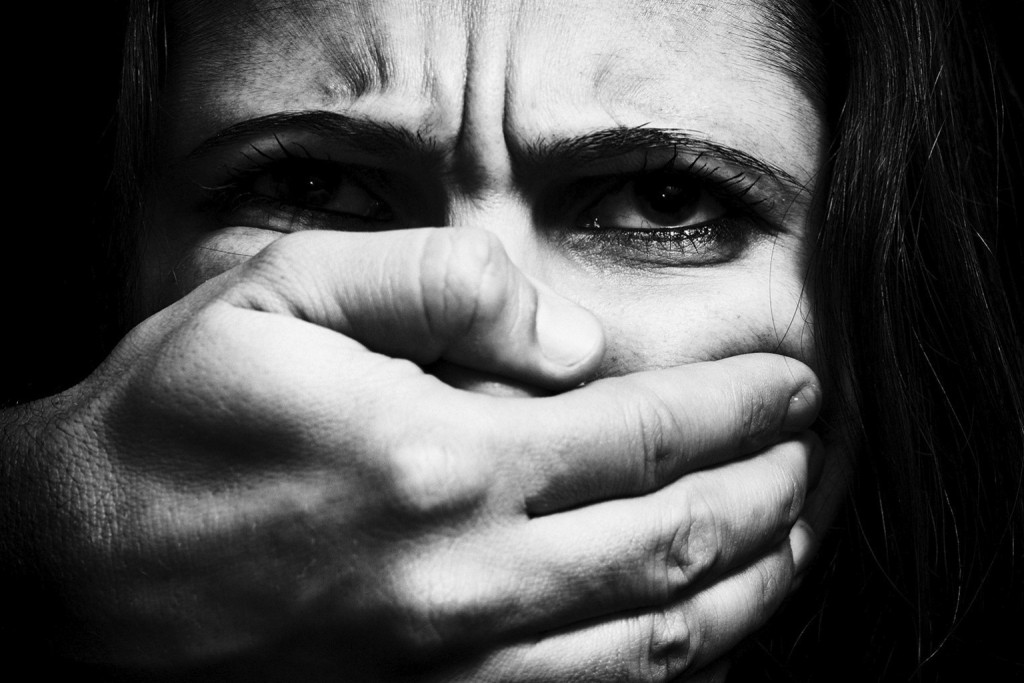Pornography
Yes, porn does trivialize rape
As I suspected, my recent article asserting that pornography fuels rape culture has proven to be pretty controversial for both sides of the debate—porn advocates claiming that no it doesn’t, and some even saying that the girls being beaten up in porn movies like it very much, thanks, and the conservative side stating that since there is no such thing as “rape culture,” the main point of my article is a moot one.
The pro-porn side is the one that I find most interesting, simply because the critics generally chose to condemn my hyperlinks rather than my conclusions (one hyperlink was to Fight the New Drug’s Facebook page, because I like to promote that group, and the other to a summarized article that I felt people would actually read.) Unaddressed, invariably, was my (I felt) very simple point: If an increasing majority of porn includes a wide array of abuse, be it physical, verbal, or sexual, against women, then pornography trivializes sexual assault.
For example, porn defenders have been delighted to cite the example of the now infamous Duke University porn star “Belle Knox” (now revealed to be the 18-year- old Miriam Weeks), who talked publicly about how starring in porn films is helping her pay her way through university. Being in porn, she says, is “freeing, it is empowering, it is wonderful, it is how the world should be.”
But last week, LifeSiteNews reported this story:
But former pornstar Shelley Lubben of the Pink Cross Foundation has now posted a graphic video showing a male pornographic actor repeatedly choking, slapping, shaking, and verbally abusing Weeks…
Lubben, whose Pink Cross Foundation encourages porn stars to leave the business, uploaded the film, blurring out all nudity, to the social media website Vimeo.com.
“How does it make you feel personally to, like, watch degrading sex or see women being degraded and treated like s—t or just objectified?” a male interviewer asks Weeks.
“Hot as h***,” Weeks replied.
A muscular actor then grabs her around the throat as she fights to loosen his grip around her larynx. After learning she describes herself as a feminist, the man slaps her numerous times, telling her she is worthless.
As a trail of moisture trickles from her eyes down her haggard face, he says, “Feminism 101 right here,” before continuing his assault.
I can’t speak to what Ms. Weeks finds freeing and empowering and wonderful, but only an insane and very creepy misogynist would claim that the abuse she participates in is, actually, any of those things.
Since the critics of my first article objected to my hyperlinks but seem to lack access to Google, let me cite a few other sources.
Mary Anne Layden, PhD, Director of the Sexual Trauma and Psychopathology Program in the Department of Psychiatry at the University of Pennsylvania writes a fascinating paper entitled “Pornography and Violence: A New Look at Research.” I would encourage doubters of my thesis to read the entire paper:
“For many reasons, as we shall see, pornography is a very effective teacher of beliefs and behaviors, and one that also teaches its users that the behaviors are acceptable and stimulates them to do so…
Males who viewed sexual violence obtained higher scores both on scales measuring acceptance of interpersonal violence and the rape myth [the belief that women actually enjoy rape and suffer few negative consequences], when compare to males who viewed either a physically violent or neutral film. The increase in attitudes supporting sexual violence following exposure to pornography is greater if the pornography is violent than if it is non-violent.
A similar effect is seen even when the pornography is not violent. Males who are shown non-violent scenes that sexually objectified and degraded women and were then exposed to material that depicted rape indicated that the rape victim experienced pleasure and ‘got what she wanted.’
Even women who were exposed to pornography as a child have a greater acceptance of the rape myth than those who were not. Those exposed to pornography recommend a sentence for a rapists that was half of that recommended by those who had been shown non-pornographic imagery. These subjects appear to have trivialized the crime of rape.”
And then there’s this, as cited by the Berkmen Center for Internet and Society at Harvard Law School:
[Excerpts of the] Report of the Attorney General’s Commission on Pornography:
Section 5.2.1 Sexually Violent Material
“…[C]linical and experimental research … [has] focused particularly on sexually violent material, [and] the conclusions have been virtually unanimous. In both clinical and experimental settings, exposure to sexually violent materials has indicated an increase in the likelihood of aggression. More specifically, the research, … shows a causal relationship between exposure to material of this type and aggressive behavior towards women.
…The evidence also strongly supports the conclusion that substantial exposure to violent sexually explicit material leads to a greater acceptance of the ‘rape myth,’ in its broader sense – that women enjoy being coerced into sexual activity, that they enjoy being physically hurt in sexual context, and that as a result a man who forces himself on a woman sexually is in fact merely acceding to the ‘real’ wishes of the woman, regardless of the extent to which she seems to be resisting…”
And then there’s news stories such as this one out of the UK last year, entitled “Porn ‘drives youngsters to violence during sex,’” where the author notes that “Extreme pornography is driving thousands of young people to commit sex attacks, a study shows. Some nine percent of 14-21-year-olds admitted to carrying out some sort of sexual violence, including one in 50 who had raped someone. Those perpetrators tended to report ‘more frequently being exposed to media that depicted sexual and violent situations,’ the poll of 1,058 people found.”
I could go on. The evidence that pornography, especially violent pornography, both inherently trivializes rape as well as trivializes sexual assault in the minds of those consuming it as so-called entertainment or recreation, is as overwhelming as it is obvious. This is not a very difficult concept to figure out, either. Regardless of your opinion on porn use, pornography is, at its very core, the systematic dehumanization of those being portrayed and the systematic degradation of unique human beings with personalities, ambitions, personal histories, and perspectives, to a one-dimensional sex object for one-sided consumption. It’s sexually carnivorous, and sexually cannibalistic. If you can boil a person down to a body or a collection of body parts, it’s scarcely surprising that violence against that person can be accepted much more easily by those participating in the dehumanization process of porn use.
As for those who say that my thesis is a moot point because rape culture doesn’t exist at all, I would merely point out that my claim here is not that there is a direct link between those viewing violent porn and sexual violence against women (although many others do make that claim.) The point I am making is that pornography leads to the trivialization of sexual assault, which is how many define the “rape culture.” That point, unfortunately, withstands all objection.








